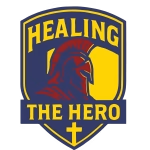
US Army Infantry Combat Veteran from Iraq
Born and raised in Appalachia, I’ve always had a love for the outdoors. My childhood years were spent outside, mostly playing in the creeks and catching whatever critters we could get our hands on. Accompanied by my faithful Golden Retriever, we would traipse through the woods and practice with our BB guns, we would carve spears from young tulip saplings, and we learned to be at home in the wilderness. I was always particularly enamored with the trout who swam the mountain streams of N. Georgia, and I learned how to fly fish as a young teen. All these things built a foundation that would be more important to me than I ever imagined.
I watched the 9/11 attacks on TV in my senior year of high school and began college soon after. As the U.S. economy slowed, and two active ground wars raged, I decided to take a break from school to enlist in The Army. I was working for the campus police department and originally planned a career in law enforcement, and military experience seemed like a good steppingstone. After training as an Infantry Rifleman at Fort Benning, I was assigned to The Army’s first Stryker Brigade at Fort Lewis, WA. My unit deployed to Mosul, Iraq in June 2006.
We moved from Mosul to Baghdad, then from Baghdad into the Battle of Baqubah, where our unit of 700 troops faced an armed enemy force of 2,000-3,000. As the acting alpha team leader on St. Patrick’s Day of 2007, my team and I were ambushed by PKC machine gun fire. I and 2 other soldiers were wounded. Critically wounded with a severed brachial artery and severe nerve damage, I very narrowly survived the ordeal. No sooner had I recovered from my own wounds, my remaining squad members were killed in a massive IED attack that took the lives of 6 soldiers and an embedded reporter, on May 6, 2007.
At only 23 years old, I was hit with so much loss and devastation, that I didn’t even know how to begin to process it, or cope with it. The close friends who I had normally trusted and leaned upon, were all dead now. I felt alone, I felt extreme survivor’s guilt, and I felt isolated. I knew people wanted to help me, and most had genuinely good intentions, but they still didn’t know what to do. Going to The VA only complicated my struggle. They threw pills at me and had no idea what I was experiencing, or how to help. I never felt more alone and helpless, than I did after a year of VA appointments. I felt like the only entity who was specifically equipped to help soldiers, was unable to help me, and I had nowhere else to turn.
Returning to what I knew from childhood—from before the war, I found peace in nature. Being on the water calmed my mind and eased my anxiety. Standing in a cold mountain trout stream, feeling the flowing water, hearing the birds, seeing the trees—it all “forced” me to live in the present (and to stop being haunted by the past). It became my most valued form of therapy. But if we’re honest—nobody wants to “cope” through life. We want to thrive, and we want to enjoy our life, fully and truly. That seems like an impossible dream, when you get home from war. If you pay attention though, you’ll see God work to bring things together in your life. I was fly fishing a lot, so I was introduced to Jay Garstecki. Then Jay introduced me to Dan Jarvis. Dan got me connected with Healing the Hero, and I finally found the key to the shackles of PTS.
When we leave the military, we lose our greater purpose, and we lose our brotherhood. We need to replace both of those things, if we want to live a fulfilling life. I don’t carry a rifle anymore—I carry a fly rod, and I’m a fly-fishing guide in N. Georgia. I have found an amazing brotherhood in the fly-fishing community, and quite a few fellow Vets. I get to help people to catch the fish of their dreams—but even better than that, I get to help guide other Veterans. Through nonprofit organizations like Veterans Fly Fishing, Sparta Project, and Project Healing Waters—I get to share my passion for fly fishing. More importantly, I can share a message of hope. When I encounter Veterans who are struggling, I can refer them to Healing the Hero and I know that they will find the same thing that I’ve found—that we can heal, and we can have our lives back. That gives me a greater purpose. You don’t have to “cope” through life, stuck in survival mode. We can thrive, and we can enjoy our lives, fully and truly.

